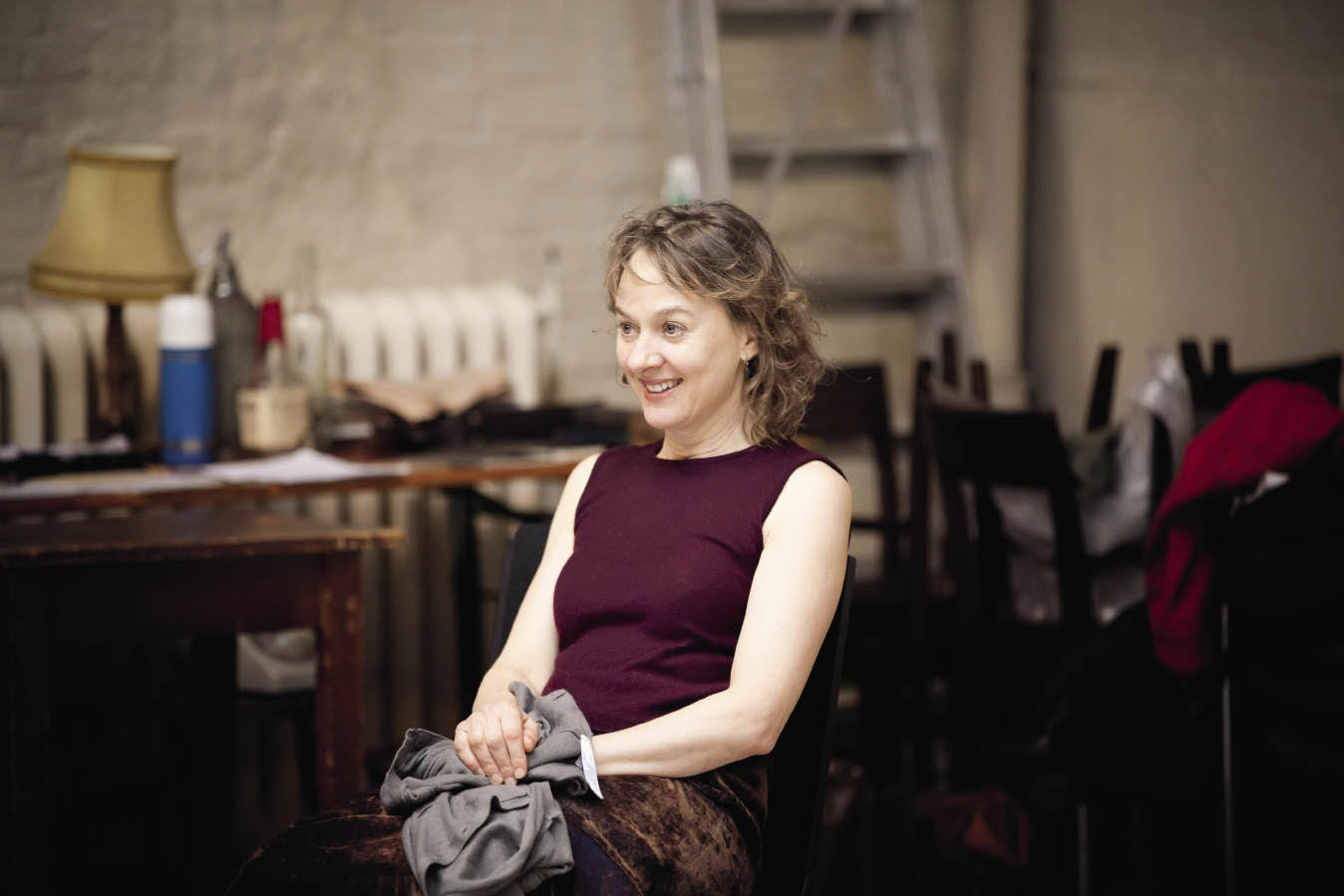Lloyd Evans meets Niamh Cusack, who ‘absolutely wasn’t going to be an actress’
She doesn’t usually do it this way. When Niamh Cusack heard that the Old Vic was planning to stage Terence Rattigan’s final play, Cause Célèbre, she read a synopsis, found a part that excited her, and asked her agent to get her an audition. ‘I’ve never approached a production like that,’ she tells me. ‘But it’s a cracking play, really, well written — a rollicking courtroom drama with great characters and fascinating relationships.’
We meet in a dressing-room at the Old Vic and make ourselves comfortable amid the higgledy-piggledy apparatus of a Feydeau farce whose run is drawing to a close. On one side is a clothes-rail crammed with garish Victorian costumes, on the other a range of make-up tables strewn with cards and good-luck notes. Propped in a far corner, as if furtively signalling the true interests of actors, sits a battered old TV set with a black portable aerial pointing southwards, like the nose of a sniffer dog, towards the Sydenham transmitters.
The role Cusack coveted, Edith Davenport, is a sexually repressed Englishwoman serving on the jury in a sensational murder trial in 1935. ‘I felt I understood the soul of the woman,’ she says, although the only biographical similarity is that Edith, like Cusack, has a teenage son. Her campaign to get an audition began. Another actress already had the job. Then out of the blue her agent called with the news that the role had fallen vacant again. A meeting was arranged with the director, Thea Sharrock. ‘At first I voiced all the reasons why she shouldn’t cast me. I’m Irish and, although I’ve played loads of English parts, the stiff upper lip is not something I have instinctively. And Edith is so quintessentially English that I could see why they wouldn’t want me.









Comments
Join the debate for just £1 a month
Be part of the conversation with other Spectator readers by getting your first three months for £3.
UNLOCK ACCESS Just £1 a monthAlready a subscriber? Log in